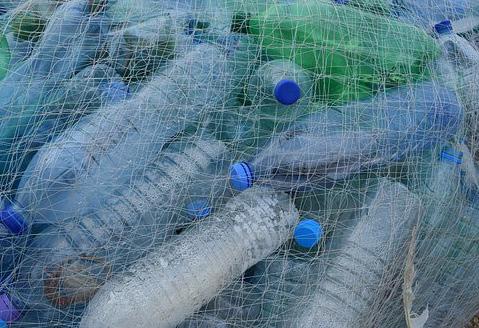SA's biggest brands move towards
sustainable packaging As environmental awareness increases, both globally and locally, the amount of waste generated in South Africa is attracting more concern. By Nonhlelo Nhleko, Paula-Ann Novotny & Ziyanda Ngcobo of Webber Wentzel
S
ignificant volumes of waste are still being diverted to landfill sites, which reflects a continued and dangerous ‘take-make-dispose’ relationship with consumer products. In response to both consumer and legislative pressures, some of South Africa’s largest retailers and brands are now putting a greater emphasis on the recyclability of their packaging. World Wildlife Fund South Africa’s Plastics: Facts and Futures report, published in November 2020, showed that out of the major municipalities, only eThekwini Metro in KwaZulu-Natal and the City of Ekurhuleni in Gauteng have significant landfill space left. There is therefore an urgent need to divert plastic and packaging waste and other end-of-life materials away from landfill sites.
Legislative moves The Plastic Carrier Bags and Plastic Flat Bags Regulations (Plastic Bag Regulations) published under the Environment Conservation Act (No. 73 of 1989) are premised on the popular slogan: ‘Reduce, Reuse, Recycle’. Read with the plastic bag levy introduced in 2004 under the Customs and Excise Act (No. 91 of 1964), an indirect tax has been imposed on the movement, manufacture or consumption of plastic bags. Retailers pass this
38
FEBRUARY 2022
|
ReSource
tax onto consumers by charging for every sale of a plastic bag. The Plastic Bag Regulations also impose certain ‘compulsory specifications’ on plastic bags (such as a minimum thickness of 24 microns), to make plastic bags more environmentally friendly and reusable. Under the most recent amendments to the Plastic Bag Regulations, there is now a deadline that all plastic bags should contain designated amounts of ‘post-consumer recyclate’ at certain intervals, until they ultimately contain 100% post-consumer recyclate content by 1 January 2027 (subject to permissible exceptions). But our legislators have acknowledged that we need to do more in encouraging circular economy thinking and practices. In May 2021, the Extended Producer Responsibility Regulations published under the National Environmental Management: Waste Act, 2008 took effect, marking a new waste management policy approach that is now regulated by law. Extended Producer Responsibility (EPR) is founded on product stewardship and the polluterpays principle, to encourage circular economy practices (such as sustainable packaging design), increase recycling rates and divert waste from our landfills. The EPR Regulations prescribe mandatory EPR measures that designated producers of identified products in (among others) the paper,
packaging and single-use product sector must comply with. These include upstream obligations (i.e. regulating the design, production and composition of products to encourage avoiding, reducing and reusing waste), as well as downstream obligations (i.e. regulating the waste implications associated with products after their consumption, such as recovery, recycling and disposal). In support of the EPR Regulations and their requirements, the Department of Forestry, Fisheries and the Environment (DFFE) published the ‘Draft Packaging Guideline: Recyclability by Design for Packaging and Paper in South Africa’ on 6 October 2021. Its main purpose is to reduce the volume of packaging in landfill sites by improving product design, increasing the quality of production practices, and promoting waste prevention. The Draft Packaging Guideline focuses on the design of packaging to facilitate recycling and represents a small but important aid for the journey to sustainable production and consumption, specifically seeking to maximise the value of recyclate (where the specification of recycled materials in the design of new products supports the recovery of material).
Ethical marketing Large retailers such as Mr Price, Woolworths, Shoprite and Spar, as well as large brands like Estee Lauder and Coca-Cola, have, for several years, been aggressively pursuing sustainable packaging goals by developing, and increasingly using, environmentally friendly and sustainable packaging. This enhances the appeal of their products to many shoppers.


















